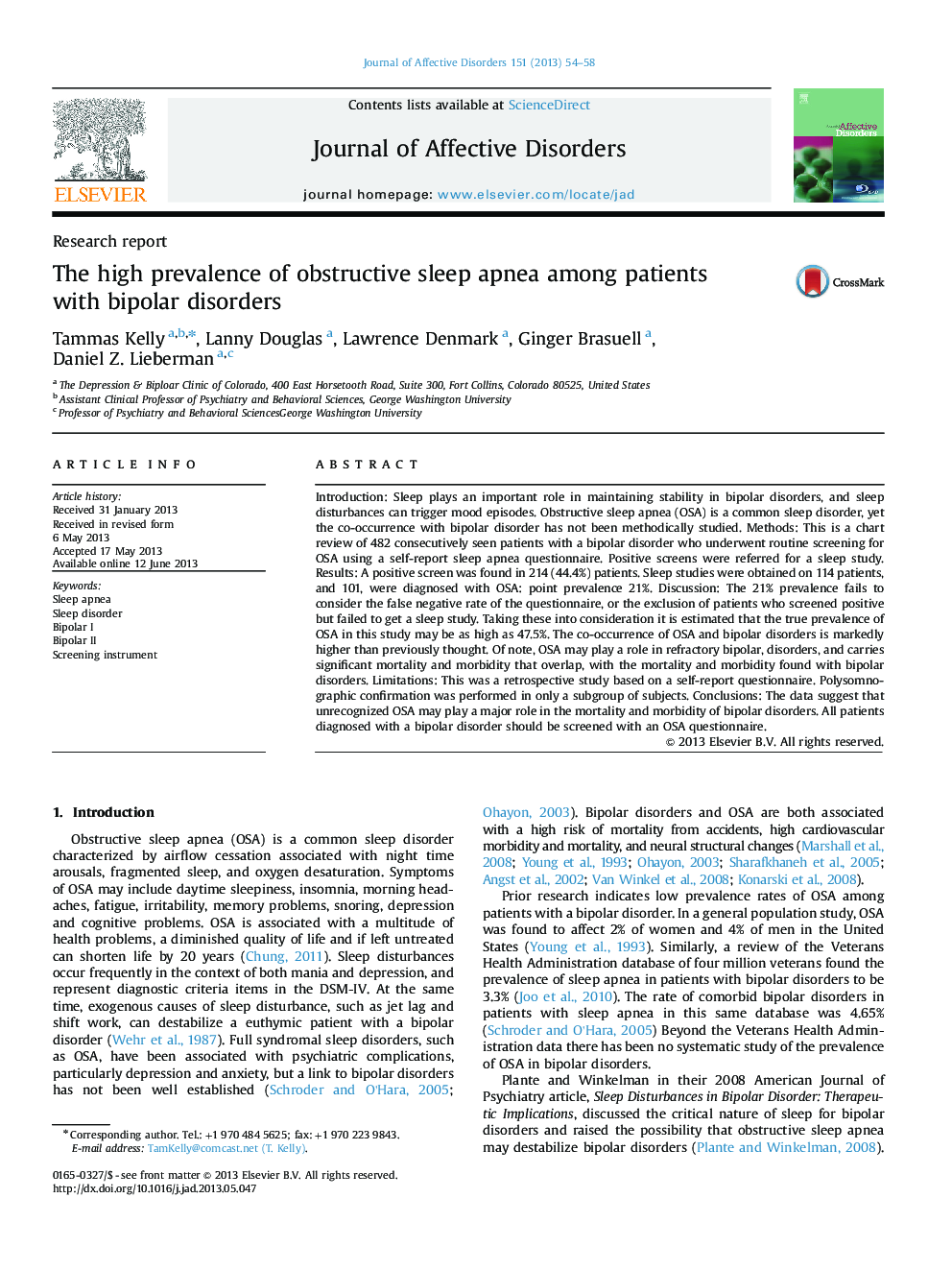| Article ID | Journal | Published Year | Pages | File Type |
|---|---|---|---|---|
| 6234028 | Journal of Affective Disorders | 2013 | 5 Pages |
Introduction: Sleep plays an important role in maintaining stability in bipolar disorders, and sleep disturbances can trigger mood episodes. Obstructive sleep apnea (OSA) is a common sleep disorder, yet the co-occurrence with bipolar disorder has not been methodically studied. Methods: This is a chart review of 482 consecutively seen patients with a bipolar disorder who underwent routine screening for OSA using a self-report sleep apnea questionnaire. Positive screens were referred for a sleep study. Results: A positive screen was found in 214 (44.4%) patients. Sleep studies were obtained on 114 patients, and 101, were diagnosed with OSA: point prevalence 21%. Discussion: The 21% prevalence fails to consider the false negative rate of the questionnaire, or the exclusion of patients who screened positive but failed to get a sleep study. Taking these into consideration it is estimated that the true prevalence of OSA in this study may be as high as 47.5%. The co-occurrence of OSA and bipolar disorders is markedly higher than previously thought. Of note, OSA may play a role in refractory bipolar, disorders, and carries significant mortality and morbidity that overlap, with the mortality and morbidity found with bipolar disorders. Limitations: This was a retrospective study based on a self-report questionnaire. Polysomnographic confirmation was performed in only a subgroup of subjects. Conclusions: The data suggest that unrecognized OSA may play a major role in the mortality and morbidity of bipolar disorders. All patients diagnosed with a bipolar disorder should be screened with an OSA questionnaire.
